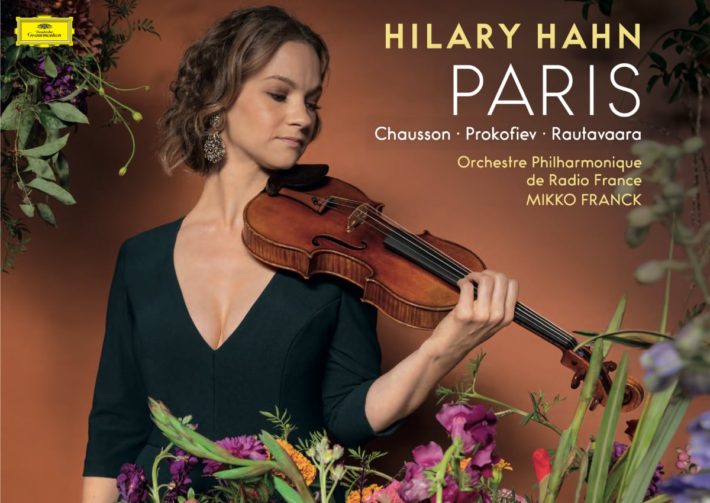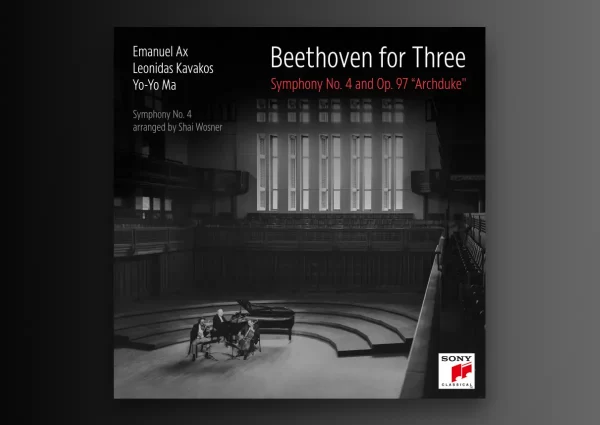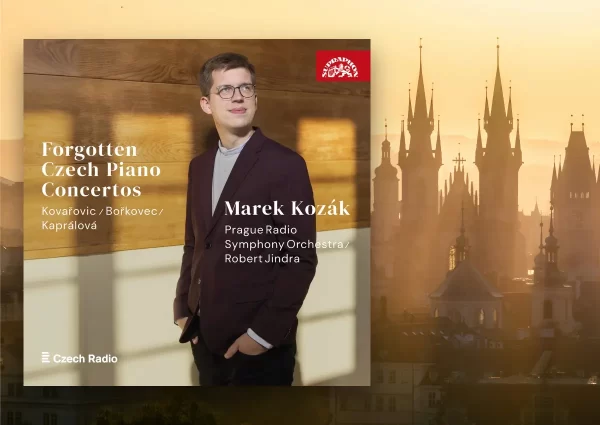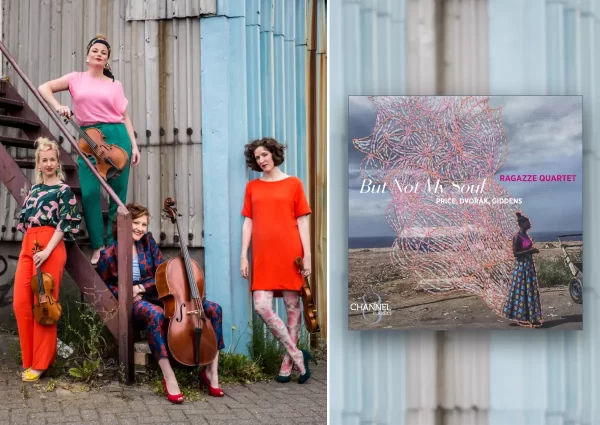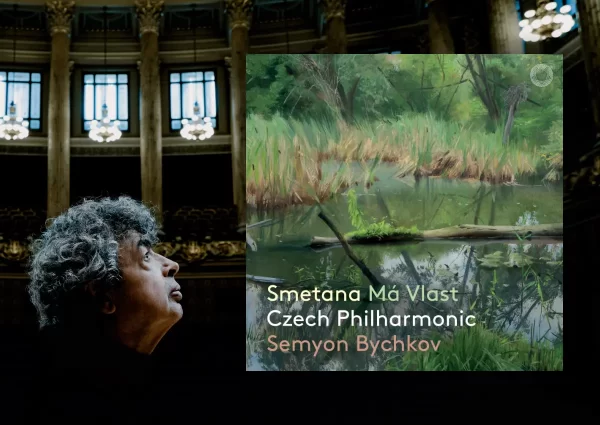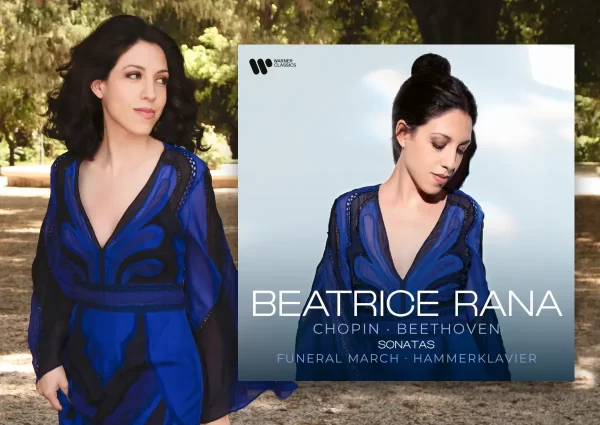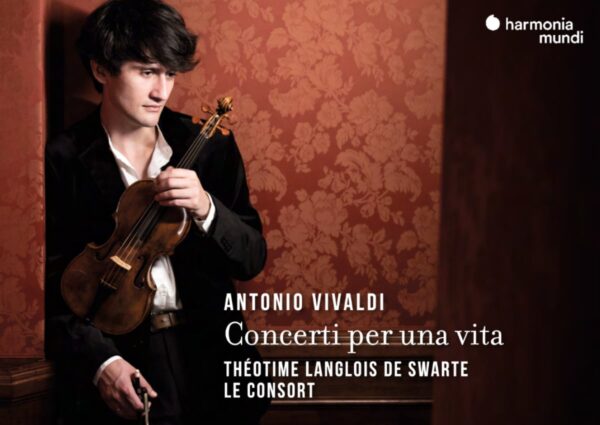Hahn’s eloquent introductory note makes clear the importance of Paris to her as a musician and person. She graciously praises the OPRF’s “uniquely French” interpretive style, its “combination of individualism and ease,” in which “emotion is embraced rather than exaggerated.” Indeed, that last description proves to be a central component of each performance heard on this album.
When Eugène Ysaÿe asked Chausson to write a violin concerto for him, Chausson instead offered what is his best-known work, Poème, a single movement in free form with several passages for solo violin. The composer found inspiration in Russian author Ivan Turgenev’s “Le chant de l’amour triumphant,” the story of a female protagonist loved by two men, a painter and a musician. She marries the painter, but the musician tries to steal her away by playing his magic violin, putting her into a trance that draws her towards him, until her husband breaks the spell by killing the musician. While the resulting work is not programmatic, it does mirror the story’s conflicting emotions. Hahn’s performance of the initial solo (1’39”) certainly has a mesmerizing delicacy, while the next solo passage, with its double stop writing, shows Hahn’s faultless tuning and intonation.
Hahn and Franck shape each section with care, with a sure sense of where the music is headed. The reading has a convincing sense of wholeness that is missing from Steinbacher’s Pentatone performance. Steinbacher reading, accompanied by Orquestra Gulbenkian and Lawrence Foster, is more overtly passionate, whereas Hahn’s is more chaste, emotions deeply felt but with greater emotional distance.
Related Classical Music Reviews
- Album Review: Hilary Hahn Plays Bach (Part 2)
- Review: Ravel – Piano Trio, Chausson – Piano Quartet – Trio Machiavelli
- Review: Prokofiev – Symphony No. 5 – Oslo Philharmonic, Petrenko
Prokofiev’s “Violin Concerto No. 1,” written at roughly the same time as the first symphony, shares that work’s elegance, playfulness, and lyricism. The middle section of the first movement (2’24”) is especially engaging, its mischievous nature inhabiting the same sound world as Mendelssohn’s Midsummer Night’s music. Hahn’s playing is technically flawless: double and triple stopping perfectly tuned, all difficult string crossings and acrobatics dispatched with grace and agility. Her finely hewn is never heavy and the concerto’s many lyrical moments are dispatched by soloist and orchestra with sensitivity, grace, and aching beauty. Some listeners might crave more darkness and heft from Hahn, especially in the lower register. Franck’s accompaniment is a perfect foil to his soloist, the orchestra delighting in Prokofiev’ colorful orchestration.
The Scherzo does raise some concerns. Hahn writes in her introduction that Prokofiev’s music can feel “at the very edge of control,” yet at no point in her performance does one sense that. Franck sets the tone with an opening that is playful and buoyant, whereas with Noseda and the BBC Philharmonic (Chandos) one senses a more sinister force at work, answered James Ehnes’ fiercely energetic playing. Better yet, sample Vadim Repin’s with the London Philharmonic Orchestra led by Alexander Lazarev, its maniacal savagery absolutely “at the very edge of control.” While Hahn’s technique leaves one constantly impressed and amazed, Ehnes and Repin more fully reveal the theatrical ferocity of this music.
The final work, Rautavaara’s “Deux Sérénades,” was written at the behest of these performers. When the composer died in 2016, Hahn did not know he has written the music; the score was only discovered months later, its second serenade incomplete. (Finnish composer Kalevi Aho, once a student of Rautavaara, completed the score.) Rautavaara’s late compositional style is evident in the modal harmonies, shifting harmonic centers and great washes of sound. These obviously authoritative performances capture the music’s crystalline beauty, its emotions “embraced rather than exaggerated,” thereby allowing the music to speak with a more profound emotional power.
The linter notes, by Robert Kirzinger, are particularly excellent – thanks to DG for ensuring ancillary materials are as well produced as the recording. 52 minutes is short measure for a full priced album these days, but the performances (with the caveat noted about the Prokofiev), are certainly excellent. The DG recording is clear and transparent, Hahn’s violin balanced in the overall mix in a natural, convincing way. Warmly recommended.

Chausson – Poèm, Op. 25
Prokofiev – Violin Concerto No. 1, Op. 19
Rautavaara – Deux Sèrènades
Hilary Hahn – Violin
Orchestre Philharmonique de Radio France
Mikko Franck – Conductor
Recommended Comparisons
Read more classical music reviews or visit The Classic Review Amazon store
Follow Us and Comment:
Get our periodic classical music newsletter with our recent reviews, news and beginners guides.
We respect your privacy.

